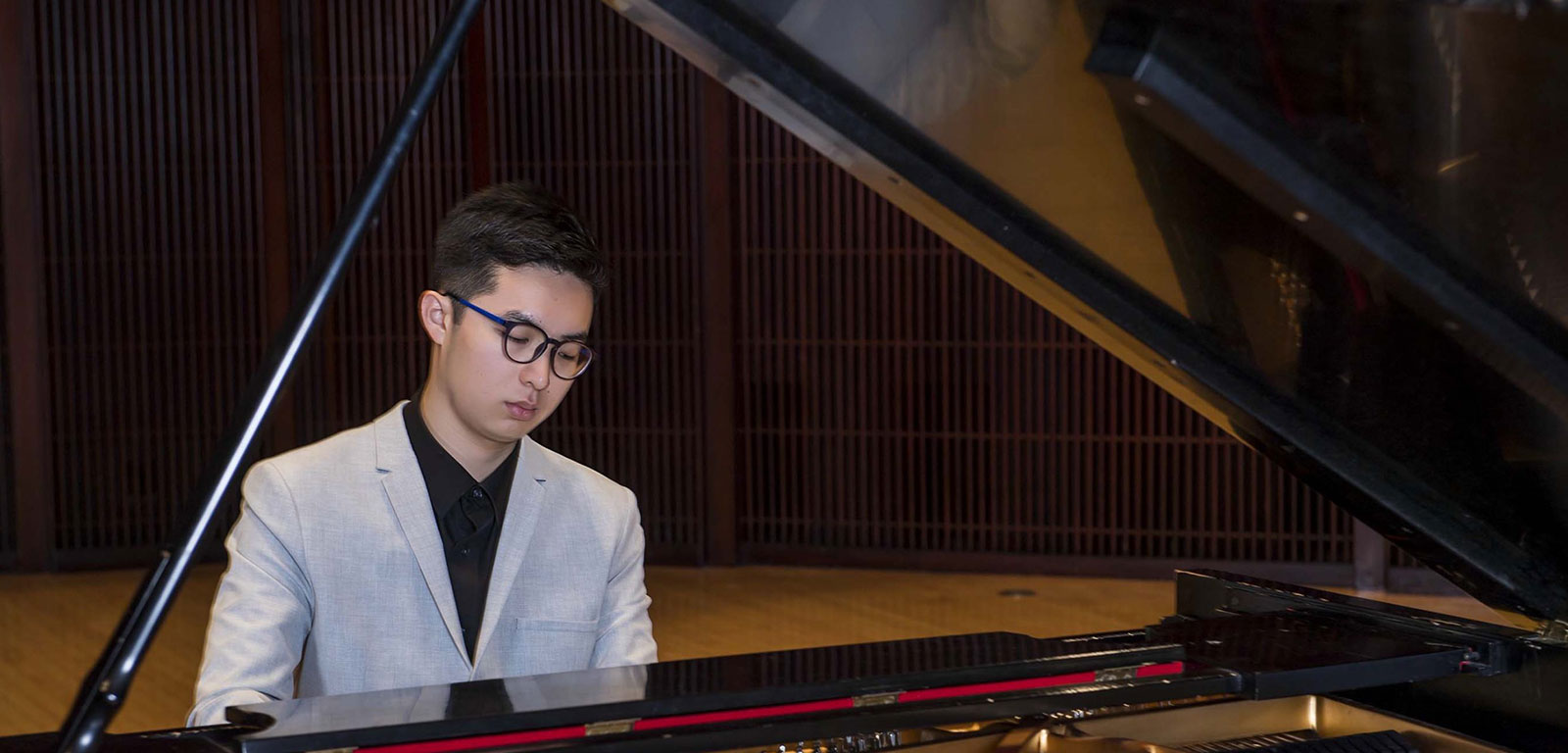

English Requirements
English language requirements apply to International applicants and other applicants whose previous study was undertaken in a language other than English. The minimum English language requirements for such applicants for entry to this program are as follows:
A minimum overall band score of 6.5 on IELTS (Academic) with no sub-score of less than 6.0
OR a minimum score of 575 on TOEFL
OR an internet-based (iBT) TOEFL score of 79 (no sub-score less than 19)
OR no score less than 3+ in each skill of the ISLPR (conducted by ISLPR Language Services only)
OR a minimum overall score of 176 (no score less than 169) on C1 Advanced (formerly Cambridge Certificate in Advanced English) or C2 Proficiency (formerly Cambridge Certificate of Proficiency in English)
OR an overall score of 58 in the Pearson Test of English (Academic) with no score less than 50.
English test results must be no more than two years old
As a Bachelor of Music graduate, you will be highly skilled, musically adaptable and equipped to enter professional life as a creative and flexible twenty-first century musician. Your educational experience will include exposure to diverse musical styles and idioms including classical, contemporary, jazz, popular, electronic, experimental and world music. You will also learn the broadly accepted musical skills of aural awareness training, music theory, critical listening, contemporary music-making practices, music literature and collaborative work appropriate to your field of study.
You will be admitted into a major which may include study in an instrument, music composition, recording studio and music production, electronic and experimental music, voice or composition, in either classical, popular, jazz or creative music technology strands. The Bachelor of Music now includes majors in popular music and creative music technology.
You may audition for more than one major or more than one instrument. However, if successful, your offer will be for only one of your auditioned areas. There may be an option after first year to divide your major between two areas through an innovative cross-study major subject to special criteria.
If you wish to study music education you will enter a teaching preparation strand in your second year. After successfully completing your undergraduate studies, you will graduate with a Bachelor of Music and be eligible to apply for a graduate entry teacher preparation program.
Should you wish to study creative music technology, you will develop a thorough understanding of the role technology plays in performing, producing, recording, and creating music and sound. You will be working to develop your artistic abilities and to apply new knowledge professionally in diverse contexts. As an aspiring composer, performer, sound designer or audio producer, you will have the opportunity to work with other Griffith Arts departments on diverse projects such as concerts, albums, documentaries, art music videos and feature films. You will study music technology applications in commercial and studio music production and recording, performance, computing, sound editing, multimedia, film, games, installation and sound composition contexts.
You will have opportunities to gain credit for project studies and music industry internships enabling you to gain invaluable experience and preparing you for a smooth transition into professional life.
Elective courses are available to deepen and broaden your musical experience. Elective study areas include: Composition; Conducting; Popular Music; Keyboard Accompaniment; Music Industry Studies; Music Literature; Creative Music Technology; Music Theory and Aural Studies; Opera and Music Theatre Studies; Pedagogy.
Students enrolled in the Bachelor of Music who decide to undertake the Bachelor of Music in Performance or Bachelor of Music in Composition should apply for a transfer into the program once they complete the Bachelor of Music requirements.
CRICOS CODE: 076297E
More Info: Click here

Your career opportunities will vary depending on your chosen areas of specialisation. As a graduate of the Bachelor of Music, you will be prepared for a career as an instrumentalist or vocalist, or in many other areas.
Through self-directed project work, you will transition from student to professional life while still in the supportive Conservatorium environment. You will have opportunities to refine your skills, focus and target your professional options and gain first-hand professional experience in your chosen area.
You will have a clear understanding of what's required by instrumental and vocal ensembles and companies, orchestras, theatre, media, the entertainment industry and community arts.
As a jazz musician, you will be equipped to work at a high professional level in jazz, musical theatre, media and entertainment.
If you have trained as a composer, you may seek to establish an independent career writing or arranging for film, plays, television, concert performance or musical theatre.
As a popular musician, you will graduate with a high level of instrumental and musicianship skills and an extensive knowledge of the popular music industry, preparing you for a career as a soloist or band member.
As a Creative Music Technologist, you will be able to work creatively in producing, performing and recording music and applying emerging technologies to your work and that of other musical professionals. You may find career opportunities in music production, performance, multimedia, recording studios, education, music business, musical composition, sound design, theatres and performance venues, and in the games, media, publishing, performance and film industries.
Increasingly, the contemporary composer works in a multimedia environment and, appropriately skilled, has opportunities in a range of creative fields in the burgeoning new technology area.
If you have included pedagogy electives in your studies, you may be equipped to undertake instrumental or vocal teaching. If you complete a graduate entry teacher preparation Masters program following completion of the Bachelor of Music, you will be eligible to apply for registration as a teacher in Queensland.

OSHC: 609 ($) AUD per year